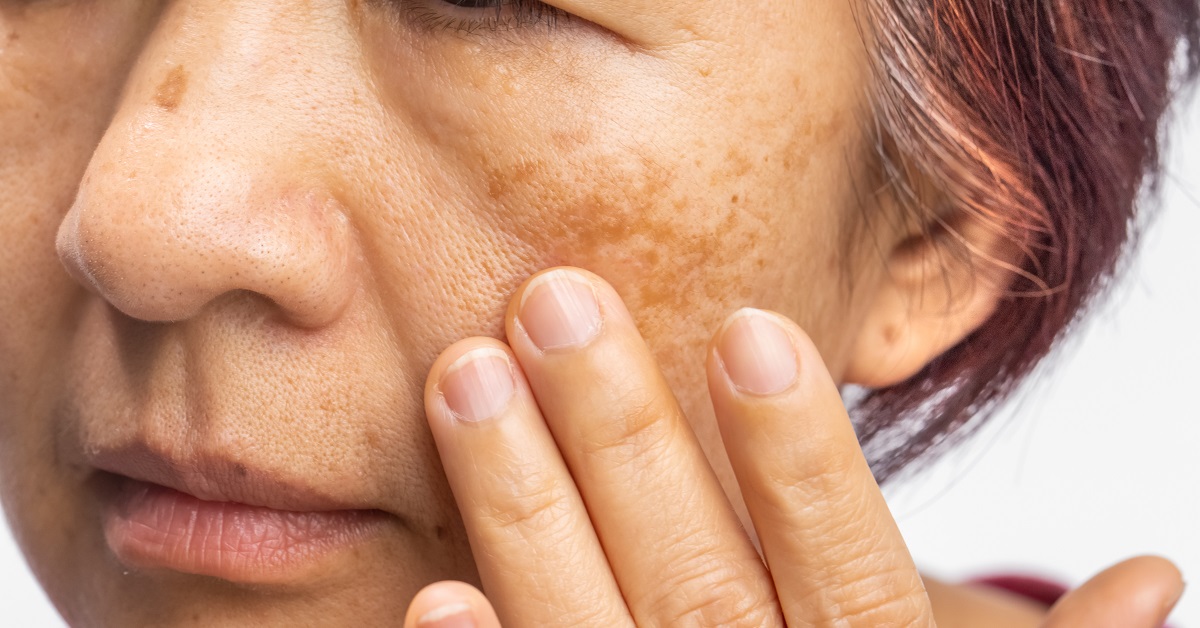The Marietta Dermatologist’s Guide to Melasma

Welcome to the Marietta Dermatologist’s Guide to Melasma. This comprehensive guide is designed to help you understand melasma, a common skin disorder that causes brown or gray patches to appear on the skin. We will dive deep into the causes, symptoms, and available treatments for melasma. Whether you are dealing with melasma yourself or simply want to become more knowledgeable about skin health, this guide will provide you with useful, practical information.
What is melasma?
Melasma is a skin condition that causes dark patches on the face and other areas of the body that are most often exposed to sunlight. It is more common in women, especially those with darker skin tones.
What causes melasma?
While the exact cause of melasma is unknown, it can be triggered by a variety of factors. These include hormonal changes, genetic predisposition, and exposure to UV light from either the sun or artificial sources like tanning beds. Certain medications such as birth control pills and hormone replacement therapy can also increase your risk for melasma.
Is melasma due to some allergy or sensitivity?
In most cases, melasma is not caused by an allergy or sensitivity. Instead, it is usually a result of sun exposure, hormones, genetics, and other factors. However, some people may be more prone to melasma because of a hypersensitivity of the skin. If you have concerns that allergies or sensitivities can be causing melasma, then talk to one of our board-certified Marietta dermatologists.
What can I do to prevent melasma?
The best way to prevent melasma is to minimize sun exposure as much as possible. Always wear sunscreen with SPF 30 or higher when spending time outside and limit your time in the sun, especially during peak hours. Additionally, you should avoid using skincare products that contain harsh chemicals and wear protective clothing if possible. Makeup with physical sunscreen can also help protect your skin from UV rays. Eating a healthy diet rich in antioxidants and managing stress levels may also help reduce your risk of developing melasma.
How do dermatologists diagnose melasma?
We usually diagnose melasma by examining the affected areas of the skin at our Marietta office and reviewing your medical history. We may also order a biopsy or microscopic analysis of the skin to get a better understanding of what is causing the condition. Additionally, we may take pictures of the affected area to monitor changes in the pigmentation over time. With this information, we can determine the best course of action for treating melasma.
Can melasma be cured?
There is no known cure for melasma, but there are treatments available that can reduce its appearance or even clear it up completely. The key is to find the right treatment plan for you and to be consistent with it. With the right care, melasma can be managed and the dark patches minimized.
What are the treatment options for melasma?
Treatments for melasma vary depending on the severity of the condition. Common treatments include topical medications such as hydroquinone, retinoids, and steroids; laser and light therapy; chemical peels; and photodynamic therapy. One of our Marietta dermatologists will be able to determine the best treatment plan for you based on your skin type and the severity of the melasma.
Are there new treatments for melasma?
In recent years, research into topical medications such as retinoids and hydroquinone has shown promising results in reducing melasma. Your dermatologist can help you decide which treatment is best for your skin type and condition.
Additionally, research has shown that intense pulsed light (IPL) and fractional lasers may be effective treatments for melasma. IPL is a type of light treatment that can improve the appearance of dark spots on the skin, while fractional laser resurfacing can help reduce discoloration as well as other signs of aging. At DESSNA, the CoolPeel CO2 laser treatment is a therapy that could help your melasma. To see if it is right for you, schedule a melasma appointment with one of our dermatologists in our Marietta office.
With new advancements in technology, there are more options than ever before when it comes to managing melasma.
Are there any home remedies for melasma?
While there is no one-size-fits-all approach to treating melasma, some lifestyle changes may help reduce its appearance. We encourage our Marietta melasma patients to eat a healthy diet rich in antioxidants, including Vitamin C, and consume plenty of water, both of which4 can help brighten the skin and reduce discoloration. Additionally, topical treatments such as aloe vera or tea tree oil may help reduce the appearance of melasma over time. However, these home remedies are not a substitute for professional medical care. If your melasma does not improve with lifestyle changes, contact your dermatologist for further evaluation and treatment options.
Additionally, some people find that they can help reduce the appearance of melasma with lemon juice, apple cider vinegar, turmeric paste, aloe vera gel, and coconut oil. It is important to remember that these remedies may irritate the skin, so it’s best to start with a small area of skin and patch test before using them more broadly.
Are there any lifestyle changes I should make if I have melasma?
Along with following a skincare routine prescribed by your dermatologist, here are some other helpful tips:
- Limit sun exposure and always wear sunscreen when outdoors
- Wear a wide-brimmed hat and long-sleeved clothing when outside
- Avoid tanning beds and sunlamps
- Eat a healthy diet that is rich in antioxidants
- Exercise regularly to help reduce stress levels
- Check your medications for ingredients that can worsen melasma, such as hormones or birth control medications
- Finally, stay hydrated and use a humidifier in your home if you live in a dry climate.
By following these tips and adhering to the treatment plan given to you by your dermatologist, melasma can be managed and its appearance reduced. It’s important to remember that this process takes time and patience.
Are there any vitamins or supplements that can help with melasma?
Some studies suggest that vitamin C, niacinamide, and other antioxidants may help reduce the appearance of melasma. However, it is important to speak to your doctor before taking any type of supplement, as they can interact with other medications and have unwanted side effects.
Can I use makeup to cover up melasma?
You can use makeup to conceal the appearance of melasma. Look for products that are labeled as non-comedogenic and oil-free, which will help reduce clogging of your pores. Also, look for ingredients such as titanium dioxide or zinc oxide, which provide physical protection from UV light. Additionally, using mineral makeup instead of traditional liquid or cream foundations can help keep your skin looking natural and healthy.
Can melasma turn into cancer?
Melasma itself does not lead to skin cancer. However, it can be a sign of underlying skin issues caused by unprotected exposure to the sun’s UV rays. So, while melasma is not cancerous on its own, it can be a warning sign that you need to be more diligent about protecting your skin from the sun. Always wear sunscreen when outdoors and limit your time in the sun, especially during peak hours. Additionally, scheduling a regular skin cancer screening with one of our DESSNA dermatologists in Marietta can protect your health and catch any issues early on, including the onset of melasma.
Can melasma spread?
Melasma is usually confined to one area of the body, such as the face, neck, or arms. Rarely, does it spread to other areas, such as the chest and back. If you notice that your melasma is spreading or getting darker in color, contact one of our Marietta dermatologists for further evaluation and treatment. Additionally, be sure to follow a comprehensive skincare routine to help reduce the appearance of melasma.
What should I do if my melasma gets worse?
If your melasma does not respond to your home care routine and prescribed treatments, you should contact one of our Marietta-based dermatologists. They may recommend additional treatments such as chemical peels or laser therapy to reduce the appearance of the condition. It is also important to avoid triggers such as sun exposure or hormonal changes, which could worsen the melasma.
In conclusion, while melasma presents a significant challenge, it’s not insurmountable. With the right combination of lifestyle modifications, home care remedies, and professional treatments from our qualified dermatologists, you have the power to manage this condition effectively.
Remember that patience, consistency, and professional guidance are your allies in this journey. Don’t let melasma overshadow the beauty of your skin. Take a step today toward healthy, radiant skin by scheduling an appointment with one of our experienced DESSNA dermatologists at our Marietta office. Let’s confront this challenge together, one day at a time.
Sources: Science Direct, JAMA, Science Direct 2, Springer, Scient Direct 3, Science Direct 4, Springer 2, Scielo



